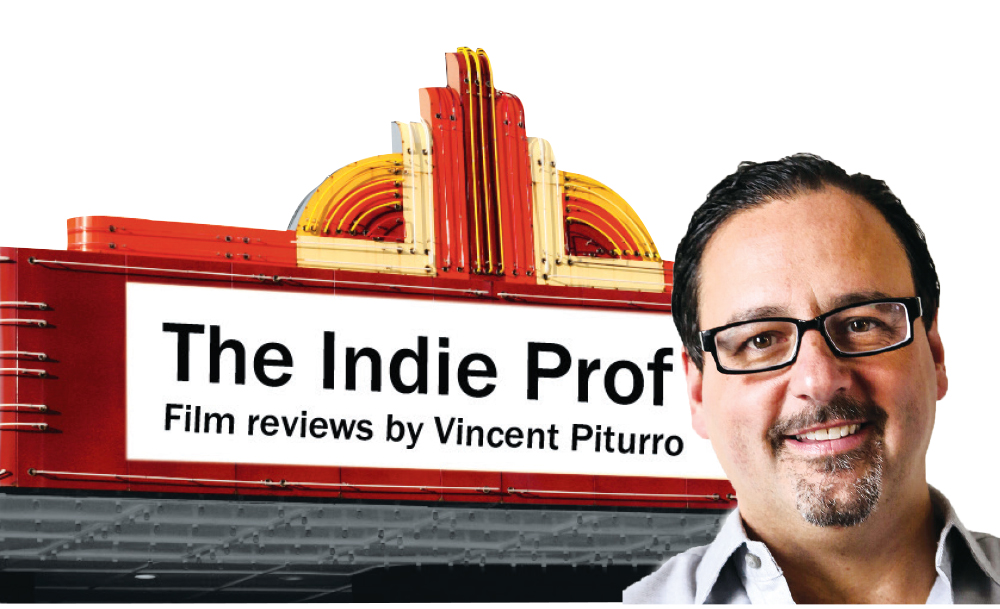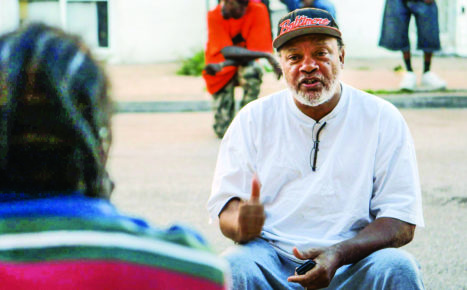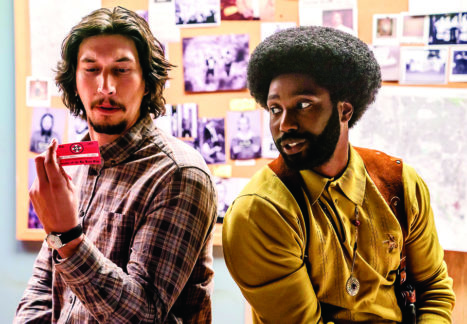 Each month, the Indie Prof reviews a current film in the theater and second film or series available on DVD or instant-streaming service. Follow “Indie Prof” on Facebook for updates about film events and more reviews.
Each month, the Indie Prof reviews a current film in the theater and second film or series available on DVD or instant-streaming service. Follow “Indie Prof” on Facebook for updates about film events and more reviews.
Also note the upcoming film series to screen and discuss classic family films, reminding us of our youth while introducing them up to our children’s generation:
Classic Family Films at the Cube
Jan. 18 – The Wizard of Oz
Feb. 22 – Mary Poppins
Mar. 1 – Willy Wonka and the Chocolate Factory
Look for ticket information on the event calendar at StapletonCommunity.com.

Charm City
Charm City (2018)
Filmmaker Marilyn Ness spent three years on the streets of Baltimore, chronicling life on those streets but also the police who work them and the city council who make policy for them. We see the harsh reality of one of the most violent cities in the country, and we see the people on both sides of that equation. If this sounds like the plot of HBO’s The Wire, you are exactly right. But this is a documentary, almost cinema verité, and the stakes are real while the images are biting. Certainly The Wire was based on true stories, but this is not based on anything. It is real, and this poignant and professionally-made documentary focuses on that real: the streets, the people, and the difficulties they face.
The film opens with a shooting—just another shooting on the streets of Baltimore. A gunman shot four people and was cornered in a building. We see the reaction of Clayton “Mr.C.” Guyton, a community activist and founder of the Rose Street Community Center, as well as a seasoned police officer on the beat, Major Monique Brown. We also meet Councilman Brandon Scott, the youngest Baltimore councilman ever elected. All will figure prominently in the film and on the streets. The same streets where, as Mr. C., puts it “There’s always something crazy going on.”
The film is not all darkness, however; the strong people who work in the community and their dedication to helping people is encouraging and uplifting. Mr. C., Major Brown, and many of her colleagues work hard on the streets every day. Scott is particularly inspiring—holding institutions and individuals accountable while repeating the mantra that violence is not just a policing function; it is a community function that includes jobs, education, and healthcare.
Still, the final, staggering statistic of the film is sobering: it is dedicated to the memory of the 1,000 people who died while the film was shot.
You will like this if you enjoyed The Wire, Hoop Dreams, and/or The Central Park Five. Opens at the Sie Film Center on January 11.

BlackKklansman
BlackKklansman (2018)
This latest film from Spike Lee is his best in years, perhaps decades. Since making his first film over 30 years ago in 1986, the polemical director has had varying degrees of successes and failures. This reviewer sees his best film as the 1989 incendiary Do the Right Thing, yet BlackKklansman may be up to the task. It is controversial, challenging, important, and like the best of Lee’s films, a cinefile’s dream: the cinematography, editing, sound, and design are all top-notch, the acting is superb, the writing is sharp, and everything points in the same direction. As Coloradoans watching this film, we have the added benefit of learning about a slice of our recent past that is more than slightly stained.
Co-written by Lee based on a memoir by Ron Stallworth, it tells the story of a black Colorado Springs policeman (John David Washington as Ron) in the 70s who infiltrates the KKK with the help of a Jewish colleague (Adam Driver as Flip). Flip eventually becomes the group leader, and the duo (with varying degrees of help and resistance from other police) eventually break up the local chapter. Yet the ending still acknowledges that the head will grow back quickly, and in fact, the film ends with footage from the Charlottesville rally, David Duke speaking to the rally (Duke figures into the action of the film as well), and President Trump’s reaction to the rally. This is not just the story of an isolated incident from the 70s.
The story is not completely factual, and several events/characters have been changed for dramatic purposes; these things have been publicly criticized by many. I say “so what?” The film is a piece of art, an interpretation of events by its director, and not outside the scope of viability for the time and place. Beyond the polemics, however, is a film that is wonderfully vibrant and full of timely, saturated, colors; music from the era; fantastic costumes; detailed period settings; dynamic editing; and biting dialogue that may be lifted directly from today’s headlines. This is a film with energy, substance, and vigor. It is a film that tells both how far we’ve come and how little we have changed in many ways. This is not only interesting and satisfying viewing, but important viewing.
You will like this film if you enjoyed Get Out, Do the Right Thing, and/or 12 Years a Slave. Now available on VOD outlets.
Vincent Piturro, Ph.D., is an associate professor of Cinema Studies at Metropolitan State University of Denver. He can be reached at vpiturro@msudenver.edu.




0 Comments